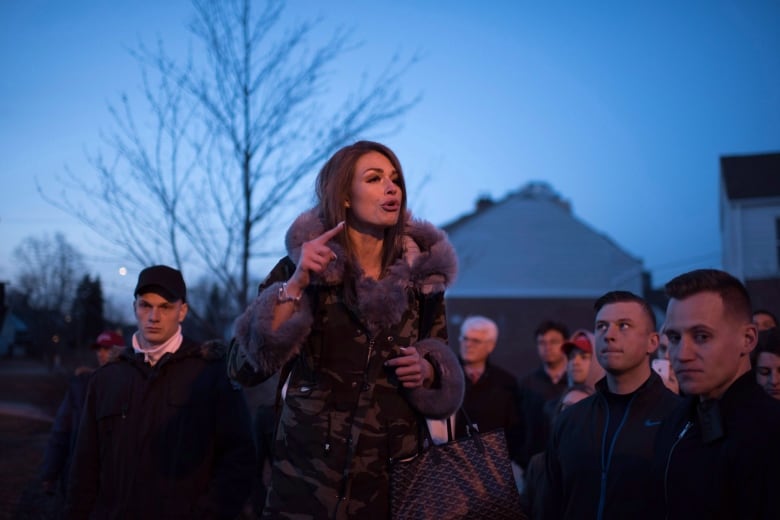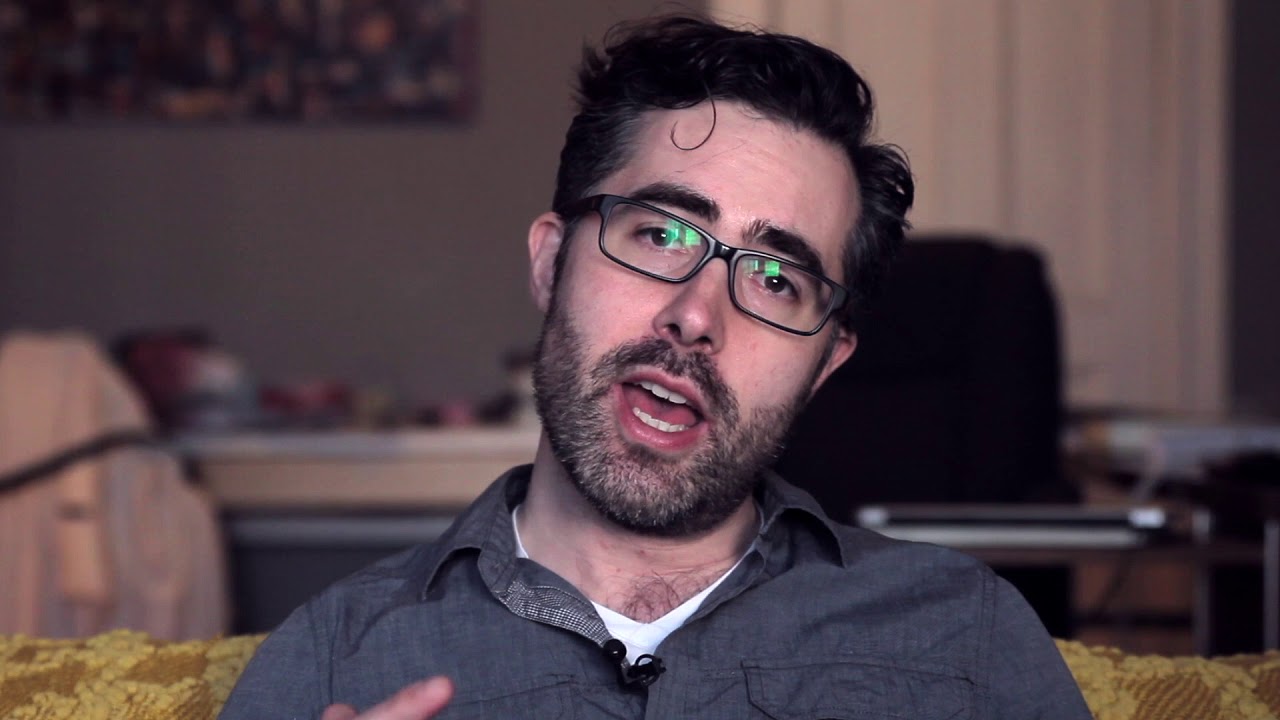When several Canadian groups and individuals were banned recently from Facebook for spreading hate, it was widely remarked that none of them were from Quebec, despite a sizeable far-right scene in the province.
A spokesperson for the social media giant told CBC News that its review of "organized hate" on its platforms is ongoing, raising the possibility that far-right groups in Quebec could still be banned.
But the failure to include Quebec-based groups or individuals on the list of permanently banned accounts, announced earlier this month, puzzled those who monitor and study extremism in the province.
There are, after all, several far-right groups which operate openly in Quebec.
Some experts wonder if Facebook lacks the necessary language skills needed to identify accounts circulating extremist content in Quebec.
"These groups express themselves mainly in French, and maybe [Facebook] doesn't have enough francophones, or algorithms capable of doing the job," said David Morin, a University of Sherbrooke professor who holds a UNESCO chair in the prevention of radicalization.

Faith Goldy, seen here outside Wilfrid Laurier University in 2018, was banned from Facebook as part of the social media platform's rules on dangerous individuals and groups. (Hannah Yoon/The Canadian Press)
In an email exchange with CBC News, the Facebook spokesperson said the company regularly consults with academics and experts in order to stay informed about hate groups. The spokesperson declined to specify who was consulted.
"Our work against organized hate is on-going and we will continue to review individuals, pages, groups and content against our Community Standards," the spokesperson said.
CBC News contacted the two leading anti-radicalization centres in Quebec: the Centre for the Prevention of Radicalization Leading to Violence in Montreal and the Centre d'Expertise et de Formation sur les Intégrismes Religieux et la Radicalisation, which is based at CEGEP Édouard-Montpetit, a college in Longueuil. Both said they had not heard from Facebook.
CBC also reached four of the leading researchers on far-right issues in Quebec. They, too, said the social media company had not been in touch.
Along with language, another factor behind the omission of Quebec-based hate groups could be their limited influence, said Martin Geoffroy, who heads the radicalization research centre at CEGEP Édouard-Montpetit.
French-language content produced in Quebec is not likely to circulate as widely on Facebook as similar content in English.
"Within the North American context, and even globally, the Quebec groups don't have as many followers. They are less networked," Geoffroy said.
"I think you have to draw a distinction between [far-right commentator] Faith Goldy and the guy who makes videos in his basement and has 100 followers," he said.
Facebook announced earlier this month that six Canadian groups and individuals, all linked to the far right, were being permanently banned from the site. (CBC News)
Goldy, who has been described as a white nationalist, was among the six Canadian groups and individuals that Facebook banned on April 8.
Also banned were the far-right groups Soldiers of Odin (also known as Canadian Infidels), the Canadian Nationalist Front, Wolves of Odin and the Aryan Strikeforce.
Facebook said the groups violated its policy on dangerous individuals and organizations.
"We do not allow any organizations or individuals that proclaim a violent mission or are engaged in violence, from having a presence on Facebook," the policy reads; and that includes organized hate.
"We also remove content that expresses support or praise for groups, leaders, or individuals involved in these activities."
According to Geoffroy, there are a number of groups in Quebec which meet those criteria.
He pointed to Atalante Quebec, which he called "openly neo-Nazi," and the Fédération des Québécois de souche, a white nationalist group. Both have active Facebook pages.
On Atalante's page, there are displays of support for the Italian fascist group CasaPound.

Atalante Québec's Facebook page remains active. In this image, which is posted on the page, the group is displaying its support for a fascist organization in Italy. (Facebook)
Under a post endorsing "national preference," the policy of prioritizing natural-born citizens in the allocation of resources, multiple commentators wrote "les nôtres avant les autres" — "us before them."
Moreover, the group's leader is facing several criminal charges, including criminal harassment and intimidation, in connection with a confrontation last year at the Montreal offices of Vice Media.
"These Quebec groups are similar to the ones that were banned in the rest of Canada," Geoffroy said. "If we're following Facebook's policies, they should have been banned, as well."
Facebook responds to criticism
But other far-right groups in Quebec less obviously transgress Facebook's hate speech policies.
Morin, the UNESCO-sponsored radicalization expert, said Facebook's crackdown appeared to begin with the most extreme groups.
Many of the far-right groups in Quebec strive to present a "politically acceptable facade and play on the limits of acceptable discourse" in order to avoid being censored, he said in an email.
That's the case for La Meute, arguably the largest far-right organization in the province, whose leaders closely monitor the comments on its Facebook page, Geoffroy said.
When Facebook announced its decision to ban the English-speaking Canadian groups, La Meute's administrators told members it was deleting comments "not to infringe on your Freedom of Expression but to protect the La Meute Group."
Groups like La Meute, Geoffroy said, put Facebook in the difficult position of being forced to strike a balance between what is acceptable to say online and what isn't.
"Facebook finds itself taking decisions that I think are the responsibility of government," he said. "Limiting hate speech shouldn't be the responsibility of Facebook."
The decision to ban Canadian hate groups is part of an international effort by Facebook to respond to long-standing concerns the site is used as a platform for spreading hate and organizing violence against minorities.

Facebook has been forced to respond to long-standing concerns that the site is used as a platform for spreading hate and organizing violence against minorities. (Andrew Harnik/Associated Press)
Facebook tightened its policies after a racist gunman killed 50 Muslims in attacks on two mosques in Christchurch, New Zealand in March.
The gunman was able to livestream video of the attack on the social media site, prompting renewed scrutiny of its so-called "community standards."
The Canadian government applauded Facebook's announcement earlier this month that it was removing some Canadian hate groups from the site.
"We are pleased that Facebook has made this decision and would hope that other platforms would look to Facebook's actions," said Karina Gould, the minister for democratic institutions.
The Quebec government declined to say whether it has addressed any concerns to Facebook about the continued online presence of Quebec hate groups.
"Facebook is a private company and can impose its own conditions for users," Public Security Minister Geneviève Guilbault said in a statement.
"We are nevertheless monitoring these movements."





















